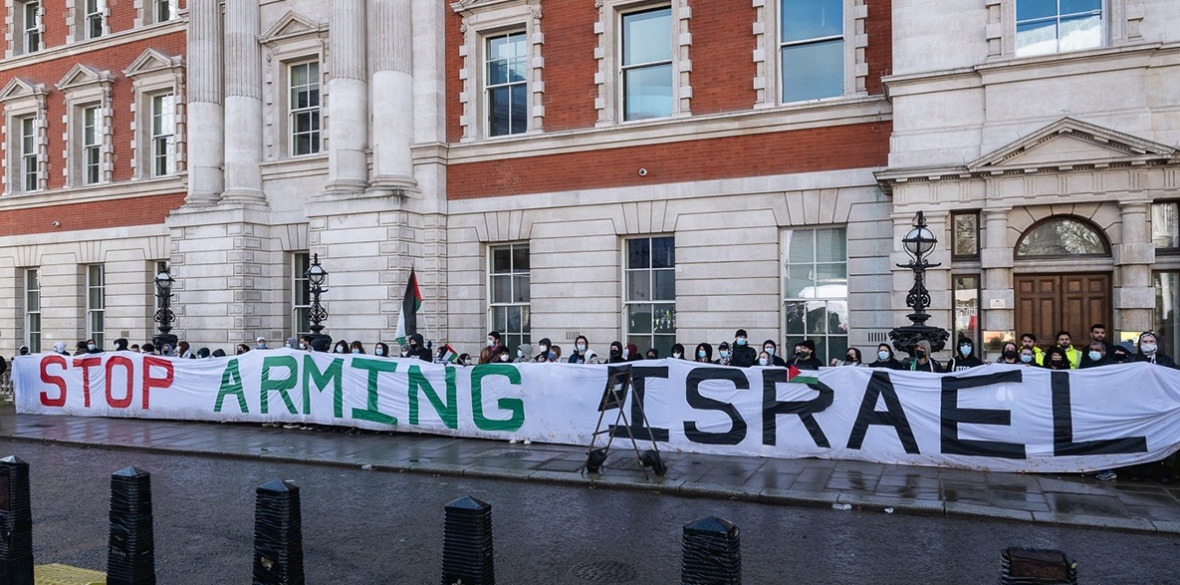Today, activists from London for a Free Palestine took a bold stand by occupying London’s Department of Business and Trade. Their demand is apparent: they urge the British government to cease its arms support to Israel.
Gathering in the Old Admiralty Building’s lobby, the protestors voiced their accusation loud and clear: “The British government, you can’t hide; we charge you with genocide.”
Maria, a participant in the protest, emphasized the essence of their location choice, stating that it is within this department that the British arms exports to Israel are sanctioned. She criticized the UK’s multifaceted support for Israel, arguing that it facilitates ongoing acts against Palestine.
Cynthia Allett, another protester, accused the department of endorsing violence through its actions. With Israel potentially initiating a ground invasion in Rafah, the activists refuse to remain silent, denouncing any British involvement in the supply of weapons used against Palestinian people.
Cynthia Nixon (Credits: Them.us)
Since the Conservative party‘s ascendancy to power in 2015, Britain has authorized arms sales to Israeli forces amounting to £472 million, as reported by the Campaign Against Arms Trade.
Arms exports require a license from the Department for Business and Trade. Regulations state that exports should not proceed if there’s a severe risk of the arms being used to violate international humanitarian law.
Recent legal challenges include an attempt by the Palestinian human rights group Al-Haq and the Global Legal Action Network for a judicial review concerning the UK’s weapons sales to Israel. This followed an International Court of Justice opinion suggesting Israel’s actions in Gaza might constitute genocide. However, the High Court dismissed the case in February.
Adding to the controversy, Foreign Minister Andrew Mitchell recently admitted the possibility of British-supplied parts being used in a January attack on a Gaza compound, which included medical staff from a British charity.
Foreign Minister Andrew Mitchell (Credits: The Independent)
Despite these developments, over 100 MPs have called on the government to immediately stop all arms sales to Israel, highlighting concerns over potential complicity in war crimes and violations of international law.
Responding to these concerns, the Department for Business and Trade insists on the rigor and responsibility with which it approaches defense exports, claiming to maintain one of the world’s strictest export licensing controls.
This ongoing debate in Britain mirrors international reevaluations of arms trade agreements with Israel. A Dutch court recently mandated the Netherlands to halt F-35 fighter jet part supplies to Israel, and Canada has frozen new arms export permits to the country, signaling a growing global scrutiny over military support to Israel amidst ongoing conflicts.
